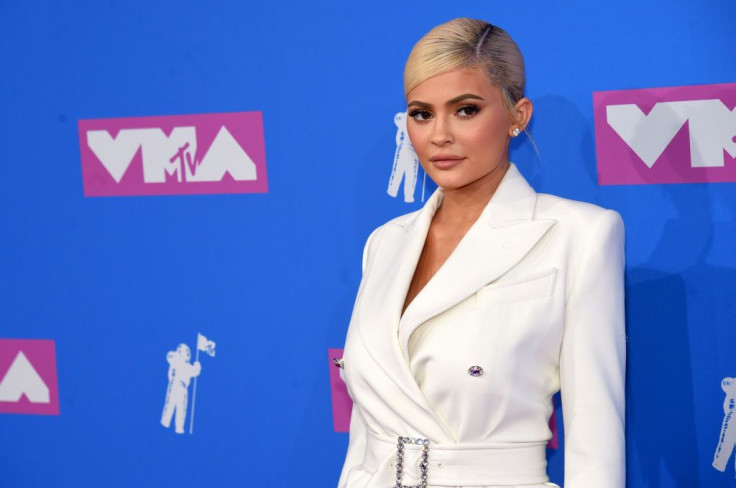Kylie Jenner Sells Majority Stake In Cosmetics Company To Coty

Beauty mogul and Kardashian sister Kylie Jenner is selling a majority stake of her Kylie Cosmetics brand to Coty (NYSE:COTY), in a deal announced Monday.
The 22-year-old reality star is reportedly handing over 51% of her company to the massive beauty brand, where Jenner will retain 49% of Kylie Cosmetics.
How much is Kylie Cosmetics worth?
Jenner launched Kylie Cosmetics in 2015 when she was 18 years old. Three years later, Forbes named Kylie the world's youngest billionaire, claiming Kylie Cosmetics would be worth $1 billion by year's end.
Coty puts Kylie Cosmetics at a valuation of $1.2 billion.
Marketing costs are low
Kylie Cosmetics is primarily known for its ever-popular lip kits, which include a lipstick and a lip liner and retail for $29. They often sell out within minutes of their online launches, along with many of her eye shadows, concealers, and collaboration lines with her reality-TV star sisters. Many collaborations also sell out on the same day of their launches, bringing in tens of millions of dollars in the process.
And these viral sell-outs often happen for two reasons. First, Kylie boasts a sizable social media following, with over 150 million followers on Instagram alone. She hawks her products somewhat violently and often updates followers on upcoming launches and flash sales on a regular basis. It may feel spammy or annoying to some, but it's free. And any company that spends next-to-nothing on marketing is either doomed from the beginning, or very, very smart. Jenner's appears to be the latter.
At least some of Jenner's success can also be chalked up to creating a sense of scarcity. Kylie Cosmetics routinely under-stocks products ahead of launches with the intention of selling out within hours. While it may frustrate those who don't hover over Kylie's website religiously, the competition to get in line for a limited-time lip kit is real, and it works. Even if you aren't sure you want Kylie's newest lipstick, you'd better get it before someone else does.
Details of the deal
The deal with Coty may come as a shock to some, as Kylie told Forbes in 2018 that she may someday pass her company down to her daughter. But time and profit wait for no man, and Coty may have snagged the company at the right time. In 2018, Kylie Cosmetics brought in roughly $360 million. Coty claims the company has brought in $177 million in the past year, which puts Kylie Cosmetics on track to boast 40% YoY revenue growth.
Coty already owns big beauty brands, including CoverGirl, OPI, and Clairol. But the acquisition may come as a breath of fresh air to shareholders, as the company has reported less-than-exciting growth in recent years, with six-straight quarters of declining profit and recent incentives to downsize rather than focus on growth and brand acquisition.
It's not likely that one acquisition will revive Coty entirely, but betting on a trendy -- and lucrative -- new brand may be what it takes to breathe new life into the company.
What happens to Kylie Cosmetics now?
Kylie signed a deal with Ulta Beauty last year to carry some of her products in their over 1,100 stores nationwide. Kylie Cosmetics will likely remain in the popular cosmetics retailer; the deal with Coty may even make distribution and accessibility easier for many shoppers. But that's not to say the deal is a guaranteed win. Kylie Cosmetics relies heavily on Jenner's social media following -- something of a fickle beast -- and the brand has had little oversight in terms of management or corporate boards. Kylie Cosmetics is said to employ about a dozen people.
Both the young billionaire and executives at Coty will have to get comfortable navigating new waters together, or risk losing market share and the ever-elusive grip on teens and young adults that Jenner seems to have so comfortably -- at least for now.
Jena Greene has no position in any of the stocks mentioned. The Motley Fool recommends Ulta Beauty. The Motley Fool has a disclosure policy.
This article originally appeared in The Motley Fool.





















